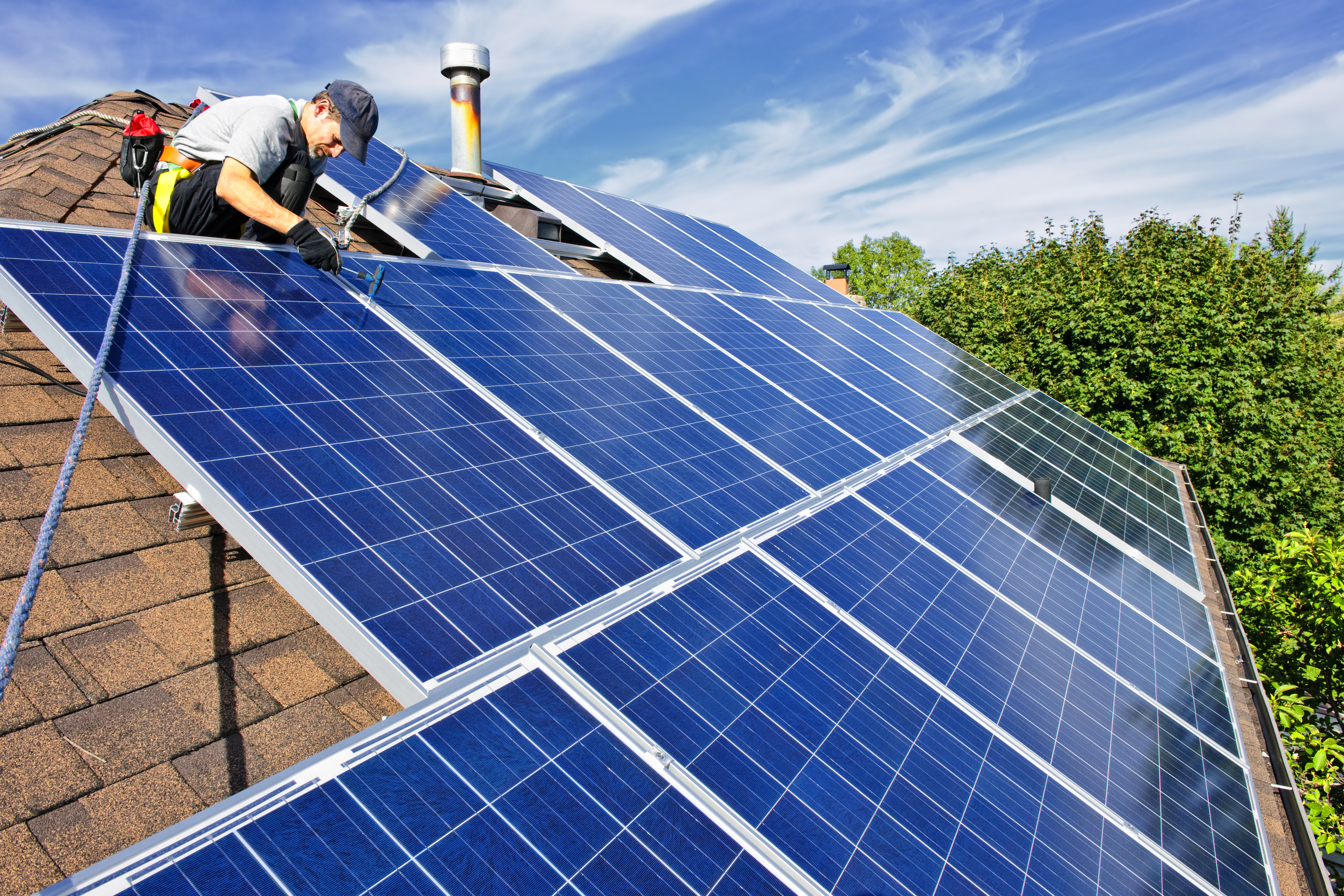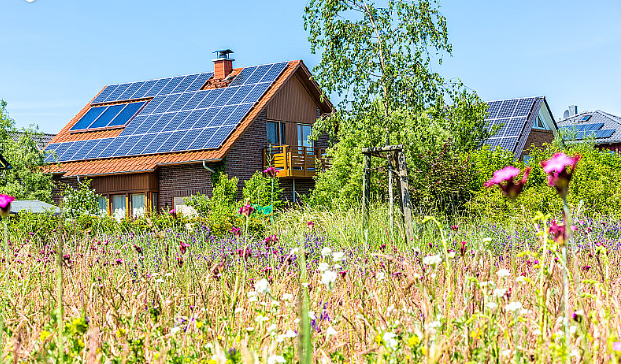The UAE rooftop photovoltaic market is about to explode, and sales channels are being declassified

With the increasing global demand for renewable energy, the United Arab Emirates, as a country with abundant solar energy resources, is facing unprecedented development opportunities in its rooftop photovoltaic market.Chinese enterprises, with their profound accumulation and manufacturing advantages in the field of photovoltaic technology, are expected to play an important role in this wave of green energy revolution.This article is the 46th article in the "UAE Business Experience" series by Sudege Trading Company, which provides an in-depth introduction to industrial policies, laws and regulations, industry trends, market demand, competitive landscape, and potential transaction opportunities in the fields of investment, trade, and engineering construction between China and Arab countries.

From Abu Dhabi to Dubai, from government policies to private practices, the United Arab Emirates is driving the development of the rooftop photovoltaic market with unprecedented strength.The successful implementation of government projects such as the Shams Dubai Solar Roof Program not only demonstrates the UAE's determination in the transition to clean energy, but also provides valuable market entry and cooperation opportunities for Chinese companies.By gaining a deeper understanding of the current situation, policy environment, and sales channels of the rooftop photovoltaic market in the United Arab Emirates, Chinese companies can more accurately grasp the pulse of the market and work together with local partners to create a better future for green energy.
1
The UAE rooftop photovoltaic market is exploding
The rooftop photovoltaic market in the United Arab Emirates is entering a golden period of development, driven by various government incentives, cost reduction of solar technology, and popularization of environmental protection concepts.At present, the installed capacity of rooftop photovoltaics in the United Arab Emirates accounts for 7% of its total electricity generation and 3% of its total electricity, especially in Abu Dhabi and Dubai.
Abu Dhabi aims to achieve a photovoltaic installed capacity of 5.6 gigawatts by 2026. Dubai, on the other hand, has a more ambitious clean energy plan, for example, residential and commercial users have made positive contributions to solar power generation by participating in the Shams Dubai solar rooftop program. The installed capacity of this plan has exceeded 500 megawatts and is expected to exceed 1 gigawatt by 2030, further demonstrating the ambition and determination of the United Arab Emirates in the field of clean energy.
In 2021, Amazon successfully established a rooftop solar power plant at its DXB3 fulfillment center located in Dubai, United Arab Emirates, which is an important step in promoting sustainable energy development in the region. This power plant consists of 5565 solar panels and can meet 60% of the energy needs of DXB3 fulfillment center, saving up to 4.6 million kilowatt hours of electricity annually.
In 2023, Emerge and Miral jointly built the largest rooftop solar project in the United Arab Emirates at Warner Bros. World in Abu Dhabi. The project covers an area of over 36000 square meters and utilizes up to 13000 solar modules, with a total installed capacity of 7 MWp, providing 40% of the theme park's electricity demand with solar energy.
The abundant sunshine in the United Arab Emirates provides it with abundant solar energy resources, making solar power generation have enormous potential. At the same time, economic benefits such as reducing electricity bills, achieving energy independence, and creating employment opportunities also encourage more people to invest in rooftop photovoltaics. With the increasing awareness of sustainable development, environmental issues have become an important factor driving the demand for rooftop photovoltaics in the market.
In terms of market trends, the commercial and industrial sectors are becoming new growth points. As companies gradually realize the importance of cost savings and sustainable development, more and more companies are beginning to invest in rooftop photovoltaic projects.
Meanwhile, technological advancements such as high-efficiency panels, energy storage solutions, and smart grids are driving market innovation, providing more possibilities for the development of the rooftop photovoltaic market. In addition, the government also improves market accessibility and encourages more people to participate by providing innovative financing schemes such as subsidies and preferential loans.
However, the market still faces some challenges. High initial investment is a burden that many homeowners and businesses find difficult to bear, which may become one of the factors hindering market development. In addition, integrating large-scale rooftop solar energy into the grid requires upgrading and renovating infrastructure, which is also an urgent issue to be solved.
At the same time, it is crucial to increase public awareness of the welfare and financing options of rooftop photovoltaics, which will help promote further market development.

2
Shams Dubai Solar Roof Plan
The Shams Dubai Solar Roof Program, initiated by the Dubai Electricity and Water Authority (DEWA), is becoming an important force in promoting the use of renewable energy in cities.
This plan encourages residents and businesses to use rooftop space to install photovoltaic (PV) panels, generate electricity on their own, and meet some energy needs. This measure not only helps Dubai achieve its 2050 clean energy strategy, but also makes a positive contribution to the sustainable development of the city.
The goals of the Shams Dubai Solar Roof Program are closely linked to Dubai's clean energy strategy. By increasing the use of renewable energy, the plan aims to increase the proportion of solar power generation in total electricity generation to 25% by 2030.
This plan is open to all building owners in Dubai who have suitable rooftop space, whether they are residential, commercial, or industrial, as long as they meet the conditions to participate.Owners participating in the plan will enjoy multiple benefits, including reducing electricity bills, receiving subsidies for grid electricity prices, government subsidies, and increasing property value. These benefits not only bring economic benefits to participants, but also contribute to the environmental protection and sustainable development of cities.
The Shams Dubai Solar Roof Plan adopts advanced technology and management models. Through the integration of net metering and smart grid, this plan has achieved efficient management and monitoring of solar energy systems. In addition, participants are provided with various financing options, including loans, ESCO (Energy Services Company), and self financing, to simplify the installation process and reduce initial investment costs.
As of 2022, Dubai's rooftop solar installed capacity has reached 500 megawatts, exceeding the initial target. The participation of thousands of buildings showcased the success and popularity of the plan. With the continuous advancement of technology and the increasing maturity of the market, the Shams Dubai Solar Roof Plan is expected to continue to play an important role in the future, driving Dubai and even the entire UAE's renewable energy industry to new heights.
3
Sales channels for rooftop photovoltaic products
The rooftop photovoltaic market in the United Arab Emirates is showing a diversified development trend, and various distribution channels have emerged to meet the needs of different segmented markets and customers. The following is a detailed analysis of these channels:
(1) Direct sales channelsDirect sales channels mainly include manufacturers and local distributors. Major Chinese photovoltaic manufacturers such as Longi Leye and Trina Solar have established their own sales and distribution networks in the United Arab Emirates, providing products directly to large customers such as developers and EPC (engineering, procurement, and construction) companies. This approach ensures the quality of the product and the timeliness of after-sales service.On the other hand, local distributors purchase photovoltaic products from multiple manufacturers to meet the needs of regional installers and retailers. They provide competitive prices and professional technical support with a deep understanding of the local market.
(2) Project specific channelsEPC companies play a crucial role in large-scale commercial and industrial projects. They are not only responsible for managing the entire solar project, but also for purchasing photovoltaic equipment from manufacturers or distributors, and handling installation and grid connection matters. This one-stop service model ensures the smooth progress and efficient completion of the project.Independent System Integrators (ISI), on the other hand, focus on providing services to small commercial and residential customers. They purchase photovoltaic products from distributors or manufacturers according to project requirements, and carry out system design, integration, and installation. This flexible service model allows small projects to also enjoy professional solar energy solutions.
(3) Retail channelsThe retail channels mainly target homeowners and small businesses. Specialized solar energy stores provide personalized advice, installation services, and financing options, making it easier for consumers to understand and purchase photovoltaic products. Meanwhile, e-commerce platforms such as Amazon and Souq also offer a wide range of photovoltaic product choices, but consumers need to pay attention to choosing reliable sellers with warranty and after-sales support when making purchases.In addition, some large building material suppliers have also begun to include solar panels and related components in their product range to meet the needs of customers for integrated solar systems when renovating or building houses. This cross-border cooperation further expands the sales channels of photovoltaic products.
(4) Other channelsGovernment initiatives such as Shams Dubai plan to have a positive impact on the distribution of photovoltaic products by providing subsidies and promoting direct contact between homeowners and pre approved contractors. These plans have reduced consumer purchasing costs and increased market acceptance.Meanwhile, Energy Services Organization (ESCO) also provides financing and installation solutions for solar energy projects. They usually purchase photovoltaic equipment directly from manufacturers based on project requirements, providing consumers with a one-stop service experience. This innovative business model has driven the popularization and application of photovoltaic products in the UAE market.
We are a 20-year-old trading company that has been focusing on customer brand customization for many years. We have joined and represented high-quality factories and products in China. Our vision is to help everyone achieve their brand dreams. If you are interested, please take a look-


